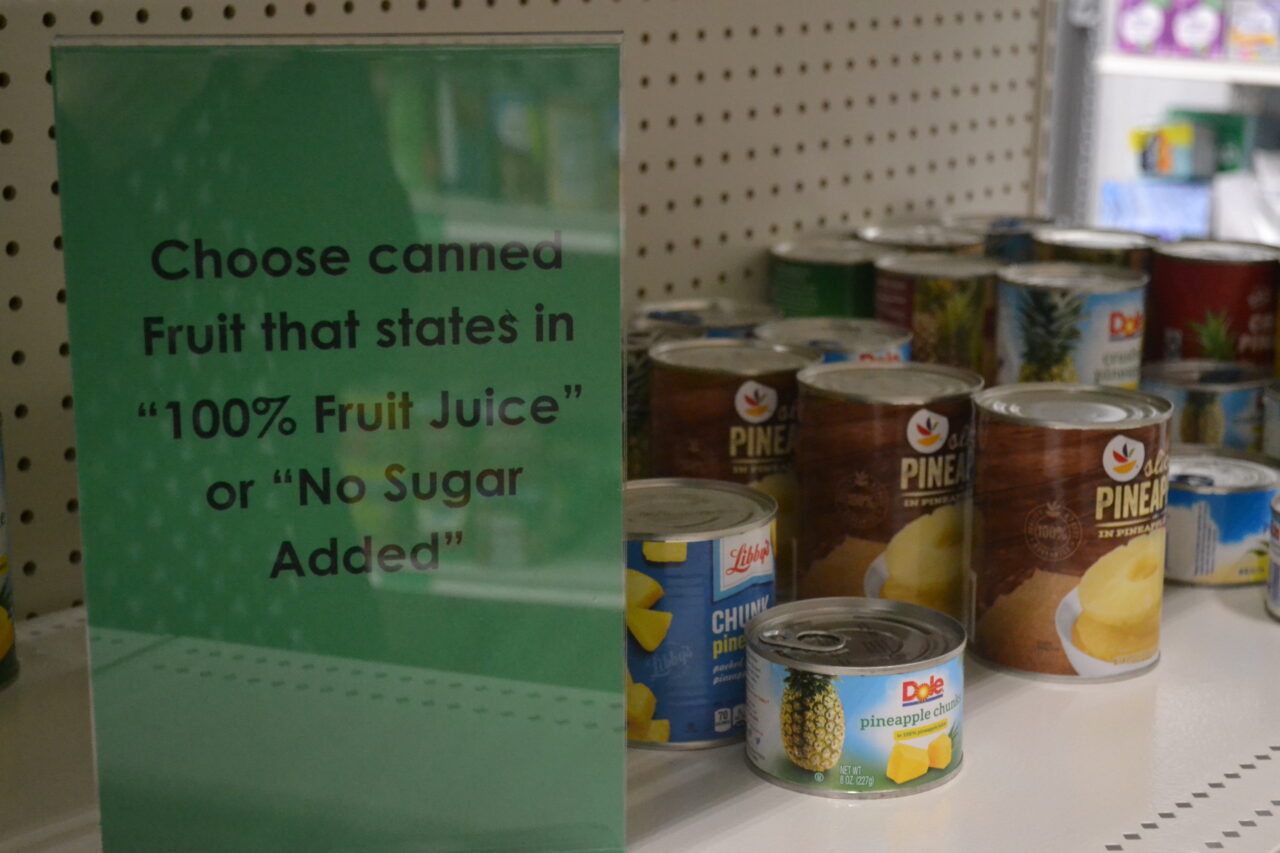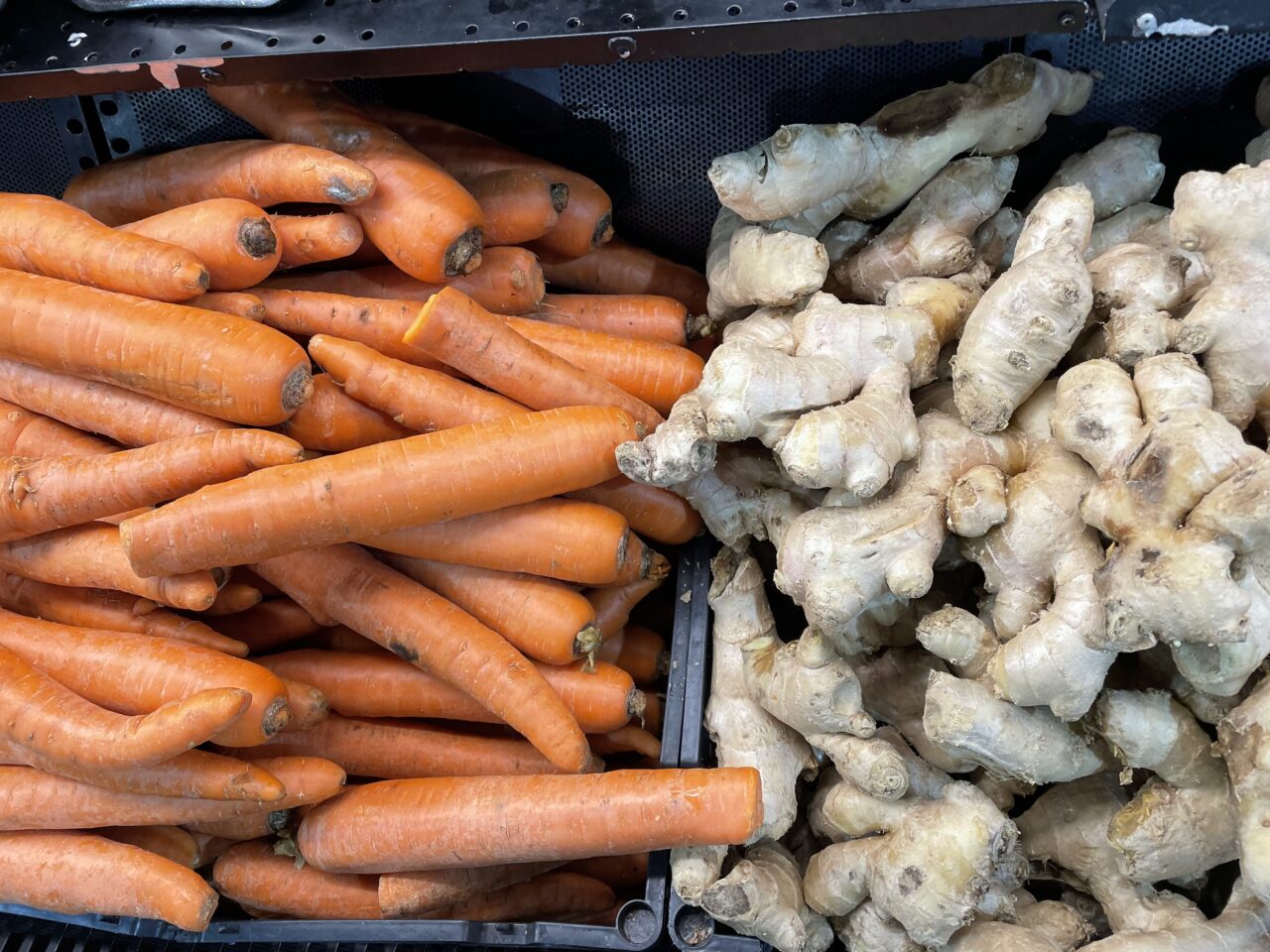Food Bank Nutrition Team uses “Nudges” to help neighbors choose healthier options
March 21, 2022
March is National Nutrition Month! Did you know we have a team of nutrition educators here at the Food Bank of Delaware? The team educates community members about healthy eating on a limited budget!
What’s a healthy choice: pear, peanut butter, or pasta? The Food Bank of Delaware’s SNAP-Ed Nutrition Team uses nudges – a behavioral economics concept – to encourage food pantry visitors to select healthier options.
Although some of our pantry partners are continuing with a drive-through distribution model, others now allow people to come in. Alicia Vogel, one of our Community Nutrition Educators, says our educators visit pantries throughout the year to evaluate and to support our neighbors in need to select healthier food choices for their families.
How does it work? “We place healthier options at eye level,” explained Community Nutrition Educator Jaime Sherman. “We also nudge them to take more abundant items.” Team members prepare recipe suggestions and info sheets that are placed near a display of plentiful canned goods, for example.
Sherman added that more abundant items may indicate that individuals do not know how to use the product — for example, dried beans — and therefore do not select them. “We will provide recipes or meal ideas and suggest that the pantry place all those items together to show neighbors how to make a meal from a previously unknown item,” she said.
Some Food Bank of Delaware partner pantries may offer even bagged or packaged meals – such as rice, beans, and vegetables – with a recipe that makes it convenient for pantry visitors to pick up all ingredients needed to prepare a healthy dinner for their family.
Meanwhile, team members also support pantries as they select from the Food Bank’s online menu used to stock their shelves. “We suggest foods to encourage,” notes Sherman.
What are foods to encourage? Foods to encourage include foods that are low in sugar and sodium, high in fiber and contain whole grain as the first ingredient. Unfortunately, many low-income Delawareans suffer from health conditions such as diabetes, high blood pressure, and other diet-related illnesses. Ensuring access to these healthier foods helps to mitigate some of these health conditions.
As an organization, it is our responsibility and duty to community members in need to procure and distribute foods of high nutritional quality. To learn more about Nutrition Education at the Food Bank of Delaware, please click here!










